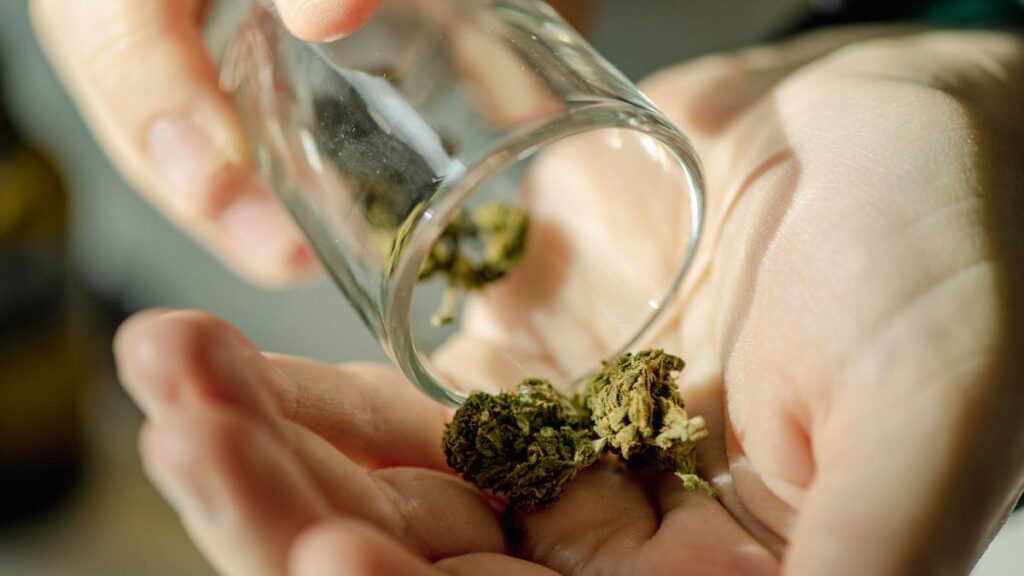The U.S. Department of Justice announced Thursday that the attorney general will begin the process of changing the rules, which, if finalized, would reclassify marijuana as a Schedule III drug. It has been considered a Schedule I drug since the 1970s, and is classified under the same federal classification as drugs such as heroin.
The use of a drug is determined, in part, by whether it serves a medical purpose, or whether that purpose is dependent on or abused by someone who becomes physically dependent, or who uses the drug beyond its prescribed or authorized purpose. ) is determined based on the judgment of how much the risk outweighs the risks. In a notice of regulation posted by the Department of Justice, the Department said it would reschedule marijuana because the Department of Health and Human Services confirmed it had approved medical uses for marijuana.
This week's announcement is being seen as historic, even though marijuana is legal in some US states for medical and recreational purposes. That's because it would represent a shift from rules that many politicians and health experts have said do not match marijuana's real risk-benefit profile.
What does this change mean for consumers? So far, nothing. Marijuana remains illegal at the federal level, and there is a 60-day grace period during which the public can submit comments to the Drug Enforcement Administration before a rescheduling decision is made. Some harm reduction and drug use advocates say they could have more influence over how people are criminalized for using and selling marijuana, and how federal rules align with state laws. Some are asking lawmakers to take additional measures.
Here's what you need to know:
Is marijuana currently legal at the federal level?
No, rescheduling marijuana use does not decriminalize it. Until the final rule is released, marijuana will remain a Schedule I controlled substance, the Department of Justice said. Even if the rescheduled status is finalized, it will not decriminalize or legalize marijuana on a national level.
But it's a step toward removing some of the red tape surrounding drugs that many people use recreationally or medically.
“Going forward, we hope this will change the way we talk about cannabis, the way we think about cannabis, and ultimately the way we legislate cannabis as a country,” said NORML Deputy Director Paul Armentano. said. Marijuana legalization advocacy groups said in a media briefing earlier this month.
What medical benefits and risks does marijuana have?
This week's federal action comes after a Department of Health and Human Services study concluded that marijuana has medical purposes, including treating conditions related to anorexia, cancer, and chronic pain, particularly neuropathic pain. I was disappointed.
According to the Centers for Disease Control and Prevention, one of the most common reasons people seek medical marijuana in the United States is for pain management. And GoodRx says this medicinal effect occurs because active chemicals in cannabis called cannabinoids can interact with binding sites in the body and turn nerve signals on and off.
Cannabis or marijuana use is also being studied for other health conditions, including anxiety, epilepsy, glaucoma, HIV and AIDS symptoms, PTSD, some sleep disorders, and as a way to reduce opioid use. being researched.
Marijuana contains the cannabinoid THC, which causes mind-altering effects, so its short-term effects can disrupt the way you feel and your mood. Some people like this feeling, and it is one of the reasons why it is used recreationally.
As the Cleveland Clinic points out, more research is needed on long-term marijuana use. But from a risk perspective, some research has linked long-term cannabis use to periodontal disease and sperm development problems, which can affect fertility. Other studies have linked marijuana use to an increased risk of lung problems and vascular disease.
According to the clinic, frequent marijuana use is also associated with an increased risk of developing schizophrenia and psychosis in predisposed people. Marijuana use at a young age has also been linked to cognitive effects that affect attention and learning.


